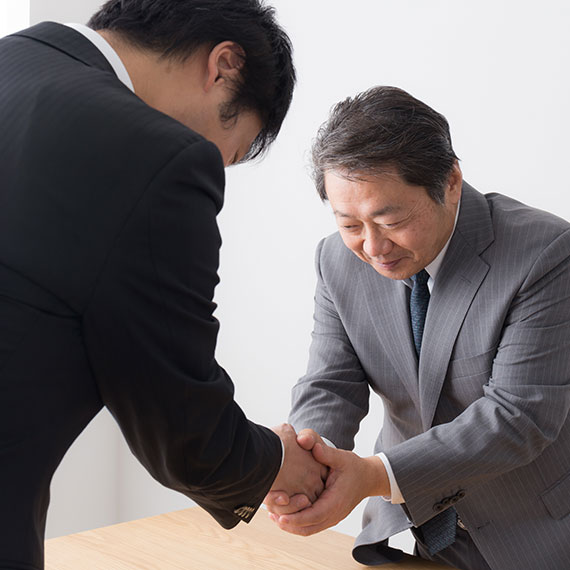Table of contents
It’s easy in English – we use the personal pronoun you when addressing someone directly in conversation, irrespective of each other’s status.
In French, for example, it’s a little trickier as there’s a distinction between formal and familiar styles of greeting. The same is true of many other languages, especially Japanese.
So, what exactly is Japanese courtesy all about and why is it so important in translations?
Direct speech in Japanese
Believe it or not, there are more expressions for the word you in Japanese than there are in nearly any other language. From “anata” to “kimi” and “omae”, when you include local dialects there are almost a hundred different versions.
You might ask why on earth someone would need so many words. The answer’s actually pretty simple and says a lot about the Japanese culture. The word a speaker uses is determined by their own age and gender, the age, gender and social position of the person they are talking to and their familiarity with each other.
As a result, a young woman would use a different word for you when addressing an older gentleman than she would when talking to a female colleague of her own age. And it’s all because of the courtesy rules in Japanese.
Direct speech without personal pronouns
One form of address that might seem strange if you’re unfamiliar with Japanese is talking to someone in the third person. Even if you’re speaking directly to Mr. Mouri, you can enquire about his well-being by asking, 毛利さんはお元気ですか。(“Mouri-san wa o-genki desu ka.”), which literally means “Is Mr. Mouri well?”.
Furthermore, there’s another form of address that omits the personal pronoun entirely when it’s clear which person is being discussed. Since the verb form always stays the same, regardless of the person, the sentence コンサートに行きます。 (“Konsaato ni ikimasu”), translates as "Going to a concert” and could mean anything from "I'm going to a concert", "He's going to a concert" or "You're going to a concert". The speakers, however, are aware of who is going from what was said earlier in the conversation.
Expressing the word “I”
You is not the only instance where this occurs. There are also several different expressions for the word I which are dependent on the speaker and their addressee. Here too, the decision as to which word to use is based – among other things – upon the age, gender, social status and the level of familiarity between both parties. Of course, there are regional differences to take into account as well!
The word 私 watashi is a relatively neutral expression that can be used by men and women of all ages, while watakushi is very formal and is more commonly used in business situations. Within families or among friends, almost no Japanese speaker would choose this expression.
The gender-specific version is the word atashi, which is used exclusively by women – if at all – as well as the even more polite version atakushi. Men generally tend to use ore or boku, depending on the region.
Translations are adapted to the target culture
As you can see, when it comes to Japanese, not only does the conversational situation play a role, but also who is talking to whom. The speech used is greatly influenced by how the parties relate to each other socially and in terms of age, as well as the level of courtesy one wants to convey.
In order for your translated text to appeal to your new target audience in East Asia effectively, it has to be adapted to suit the Japanese culture and decorum.
Professional Japanese translations
If that all seems rather complicated, don’t worry. We’ve got good news, so you don’t need to give it another thought. Simply give the work to professional translators. You can rest assured that they’ll get it right because they’re familiar with such linguistic distinctions.
The importance of courtesy in Japanese is just one of many examples of cultural differences. Native speakers have a feel for these idiosyncrasies in their own language, which can be difficult – if not impossible – for non-native speakers to learn.
Experienced translators are experts in both their respective mother tongues and foreign languages, and will convey the meaning of your text in your target audience's language in the most effective way possible.
So, with a professional translator at your side, almost nothing can stand in the way of your success in the international market!
Incidentally, if you're not sure whether to use Du or Sie in German, take a look at our blog.
